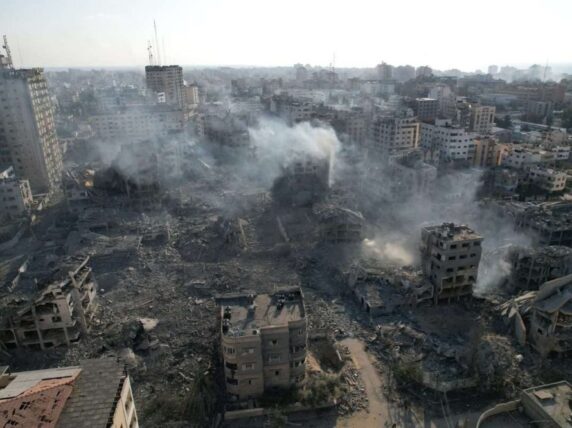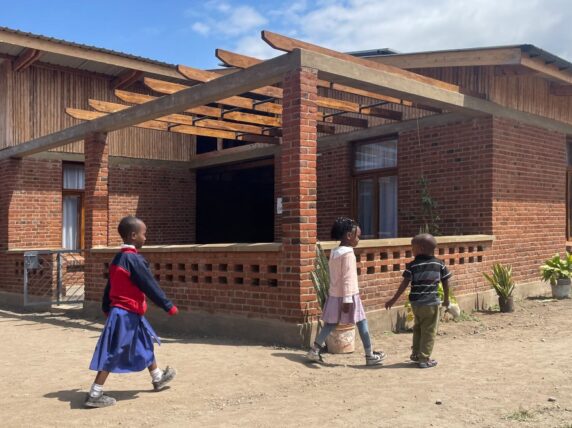Are we leaving women and girls behind? Ask them.
Gender equality isn’t a women’s issue – it’s fundamental for a safer, fairer and more sustainable world.
Recent reports highlighting insufficient global progress have been described as a “wake-up call to the world”. We must do more, and faster, to make gender equality a reality and ensure the most marginalised are not left behind.
Back when the Sustainable Development Goals (SDGs) were being negotiated, the UK government led the way in advocating for a specific goal on gender equality (Goal 5), as well as promoting the mainstreaming of gender across the whole agenda – 53 out of the 230 indicators explicitly reference “women”, “girls”, “gender” or “sex”.
This sentiment that “achieving gender equality is contingent on making progress across many of the 17 Goals” is echoed in the UK government’s first Voluntary National Review, which is being presented at this week’s UN High Level Political Forum.
But how much progress are we actually making? And what should the UK government’s role be in ensuring no one is left behind?
Current rates of global progress are far too slow
The first global index measuring efforts to end gender equality, released last month by the Equal Measures 2030 partnership, found that not one country is currently set to achieve gender equality by 2030:
- The average overall score for the 129 countries in the index (home to 95% of the world’s women and girls) was 65.7, considered “poor”
- 21 countries scored lower than 50, with the lowest scoring countries by overall index score all appearing in the OECD’s 2018 list of fragile states
- The world is furthest behind on gender equality issues relating to climate change, industry and innovation and – worryingly – the standalone “gender equality” goal.
Subscribe to our newsletter
Our weekly email newsletter, Network News, is an indispensable weekly digest of the latest updates on funding, jobs, resources, news and learning opportunities in the international development sector.
Get Network NewsAlthough disheartening, the index findings offer a more accurate snapshot of how we’re doing to improve the lives of women and girls. As discussed in the recent Bond report on the UK’s global contribution to the SDGs, women and girls’ experiences of marginalisation, emergencies, extreme poverty, violence and exploitation are multidimensional and interlinked.
To date, the official data sources used to measure progress on the goals focus on national averages and do not capture the heterogeneity and complexity of women and girls’ needs, particularly of those affected by conflict and crisis.
At Women for Women International, we’ve learnt this by situating the data provided by marginalised women survivors of war enrolling on our programme in the context of national statistics. In Nigeria, for example, only 22% of women enrolling on our year-long social and economic empowerment programme reported earning an average of more than $1.90 a day (the international poverty line). This is much lower than the national average of 36.4% that was reported in Nigeria’s 2017 Voluntary National Review, showing that marginalised women are at risk of being left behind.
Women’s meaningful participation is key to getting back on track
As heads of governments prepare to meet for the SDG Summit in September, we’re approaching a critical milestone to make crucial commitments and decisions if we’re to achieve Goal 5. But if we really want to know how we’re improving the lives of women and girls, and – more importantly – how we can get back on track, we need to ask them.
Women and girls’ meaningful participation and inclusion is essential, not just in the design and delivery of programme and policies that aim to meet the SDGs, but also in the monitoring and evaluation of our collective progress.
Women and girls have a fundamental right to participate in the decisions that impact their lives, which is enshrined within the goals. Along with filling the data gap, their participation is the best way to truly get a sense of what’s working and where further action is needed if we’re to realise Agenda 2030.
Will this be the wake-up call that the world needs?
The UK has made some noteworthy steps towards implementing gender equality in policy and practice. The Department for International Development’s (DFID) Strategic Vision for Gender Equality and its commitment to “leave no one behind” recognise the centrality of gender equality to the SDGs and the need for equitable progress.
There were also positive responses to the introduction of the International Development (Gender Equality) Act, with which DFID aimed to improve its consideration and monitoring of gender equality in its work to reduce poverty.
With just over a decade left to achieve the ambitions of the SDGs, priority must be given to ensuring an active and ongoing process through which women and girls who face multiple, intersecting discriminations, and who experience the greatest obstacles to equality, can have their voices heard. They must be supported to drive forward the changes they want to see.
Once again, the UK has the opportunity to lead the way in implementing this change. Will they take it?
Read our reccommendations for the UK government on gender equality in Bond’s report on the UK’s global progress on the SDGs.
Category
News & ViewsThemes
Gender



